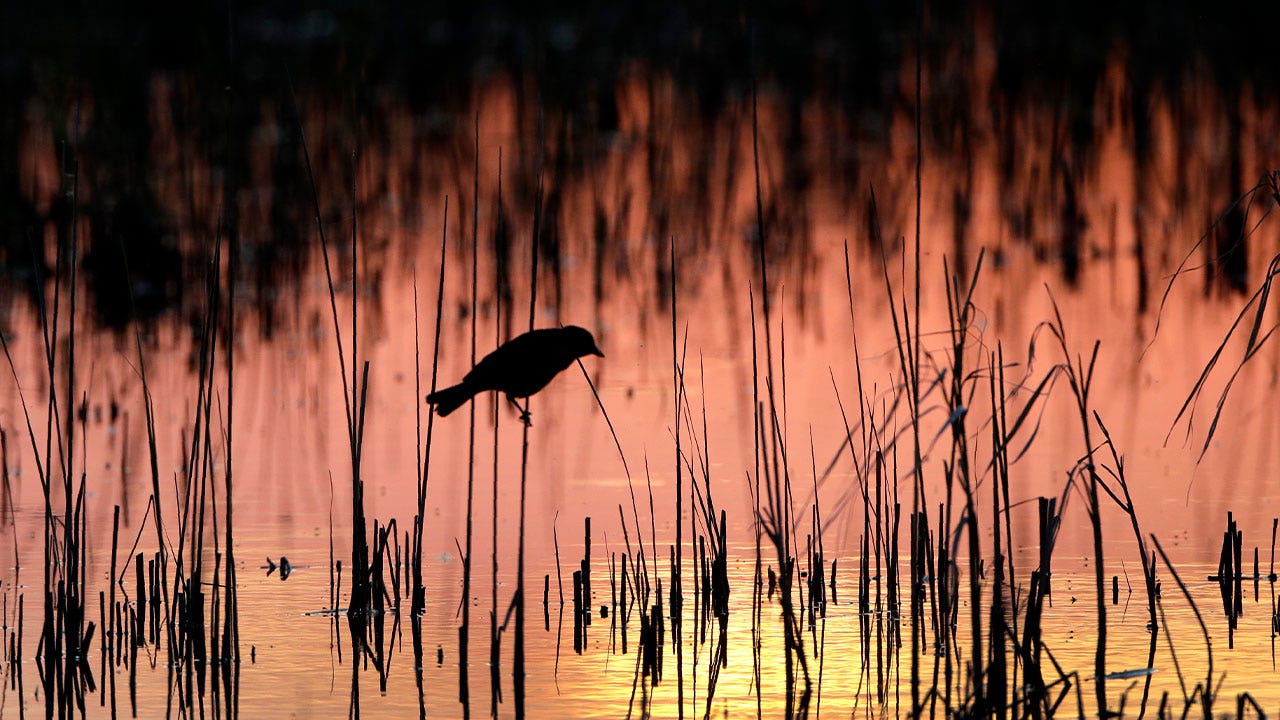Global Courant 2023-04-13 19:36:18
A federal judge on Wednesday temporarily blocked a federal rule in 24 states designed to protect thousands of small streams, wetlands and other waterways across the country.
U.S. District Judge Daniel L. Hovland in Bismarck, North Dakota, has stopped regulations from the U.S. Environmental Protection Agency and the U.S. Army Corps of Engineers pending the outcome of a lawsuit filed by the 24 states, most of which are being led by Republicans. The regulations were finalized in December 2022, repealing a rule introduced during President Donald Trump’s administration but rejected by federal courts.
Opponents of the regulations, which determine which “waters of the United States” are protected by the Clean Water Act, have called the rules an example of federal overreach and argued they would unfairly tax farmers and ranchers.
IDAHO JOINS TEXAS LAW AGAINST BIDEN’S WATERWAY PROTECTION RULE
The preliminary injunction covers Alabama, Alaska, Arkansas, Florida, Georgia, Indiana, Iowa, Kansas, Louisiana, Mississippi, Missouri, Montana, Nebraska, New Hampshire, North Dakota, Ohio, Oklahoma, South Carolina, South Dakota, Tennessee, Utah, Virginia, West Virginia and Wyoming. A court order had previously been issued stopping the rules in Texas and Idaho.
In his 45-page order, Hovland wrote that the federal regulations “raise a litany of … legal and constitutional concerns and would wreak havoc on the states.”
“Once again, the courts have affirmed that the Biden administration’s WOTUS rule is excessive and harmful to America’s meat farmers and ranchers,” said Todd Wilkinson, a South Dakota cattle rancher and president of the National Cattlemen’s Beef Association. “Livestock producers in 26 states now have some additional reassurance as this rule is litigated and we are optimistic that the Supreme Court will provide nationwide clarity on the federal government’s proper jurisdiction over water.”
A bird perches in a wetland on June 20, 2019, near Menoken, North Dakota. A federal judge on April 12, 2023 temporarily blocked a federal rule in 24 states that was intended to protect thousands of waterways. (AP Photo/Charlie Riedel, File)
The EPA said in a statement that the agency and the Army Corps of Engineers were reviewing the decision but still believe the regulations were “the best” interpretation of the Clean Water Act. The agency says its rules still apply in states not included in the order.
“The agencies remain committed to establishing and implementing a sustainable definition of ‘United States waters’, based on a variety of perspectives,” the EPA said in the statement. “Our goal is to protect public health, the environment and downstream communities while supporting economic opportunity, agriculture and industries that depend on clean water.”
SPANISH LAWSISTS CONSIDERED PLAN TO INCREASE IRRIGATION IN ONE OF EUROPE’S MOST PRICED WETLANDS
The order comes less than a week after President Joe Biden vetoed a congressional resolution that would have overturned the rule. The House and Senate had used the Congressional Review Act to block the regulations, with several Democrats joining Republicans in opposing the regulations.
John Rumpler, clean water program director at Environment America, a national network of national environmental organizations, said the judge-blocked EPA rule is supported by science and law and that the judge misinterpreted the purpose of the Clean Water Act.
CLICK HERE TO GET THE FOX NEWS APP
“From a favorite stream for fishing to the water that flows from our sinks, we all depend on clean water to survive and thrive,” Rumpler said in a statement. “That’s why an overwhelming number of Americans are in favor of stronger protection for our waterways.”
However, West Virginia Attorney General Patrick Morrisey said the key is getting the right balance between the powers given to states and the federal government.
“This rule would hurt jobs and economic growth by usurping jurisdiction from states and asserting federal authority over nearly every body of water, including roadside ditches, ephemeral streams, and many other areas where water can only flow once every 100 years,” Morrisey said. .








